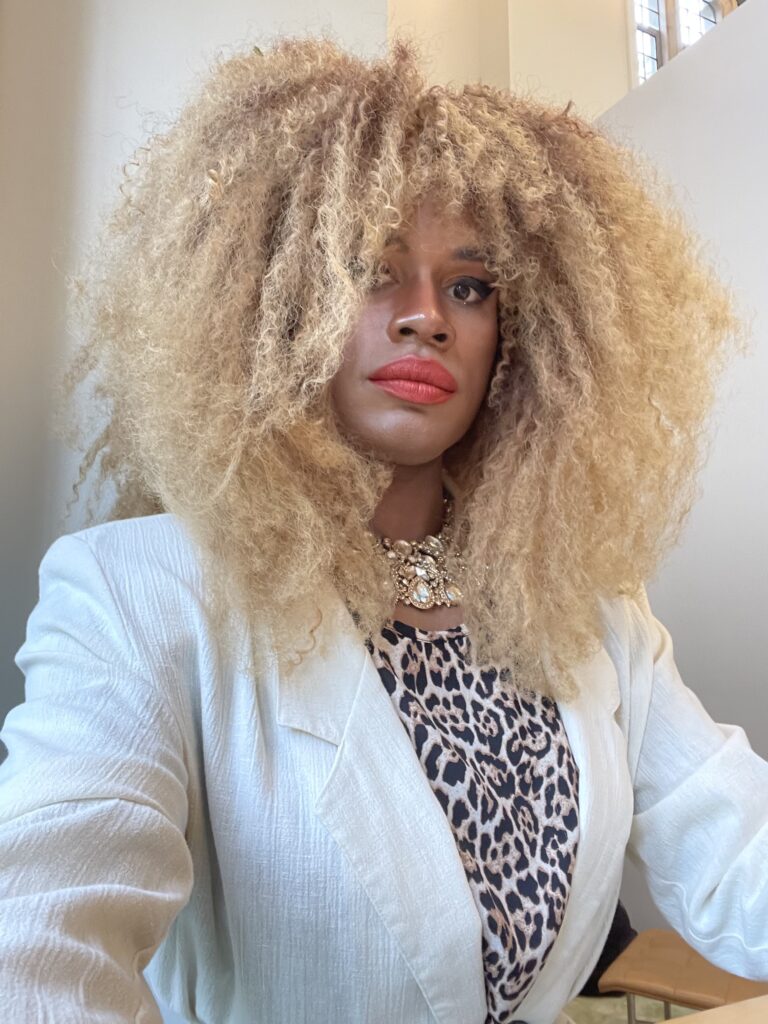Sabel Magdalene’s (she/they) story is one marked by resilience and survival. Originally from the District of Columbia, Sabel’s family moved to North Carolina when she was nine years old, a transition she described as a real culture shock.
Sabel’s home environment was difficult. She suffered domestic abuse including violence that threatened her very life and the lives of others. These experiences created a painful foundation for Sabel that she would carry throughout her youth and into adulthood. In the face of such darkness, Sabel found solace and strength in music and dance. These became her refuge and source of healing.
“Dancing saved my life.”
Movement and rhythm helped Sabel process her emotional wounds. As a child, artists like Mariah Carey provided the escape and words she needed to help soothe her pain. Songs like “Always Be My Baby” and “Hero” became her anthems.

To this day, dance remains a crucial lifeline for Sabel. As a teenager, she joined her high school’s marching band. The discipline and community she found there helped her feel more whole during some of her hardest years. After she turned 18, Sabel returned to DC to build a life around music and dance. And for a good while, she was the happiest she had been in a long time.
But then Sabel’s life took an unexpected turn when her mother passed away in 2008. This loss meant that her younger brother who lives with autism was alone. Sabel couldn’t bear the thought and would need to make an important decision to ensure he would be supported.
“I knew I’d have to take guardianship of my brother one day. But I didn’t know when.”
After the pandemic, that day finally came and Sabel found herself at a crossroads. Would she continue her life of dance and music in DC, or would she become her brother’s full-time caretaker in North Carolina? The decision wasn’t an easy one. She worried about moving again and finding a new home and job. But Sabel had faith and trusted her instincts.
“One day I woke up, and I just started researching housing support .”
Sabel’s determination to build a life for herself and her brother led her to Volunteers of America. Through VOA’s Coordinated Entry w/ Diversion program, Sabel was connected to caring case managers and housing navigators who helped her find a comfortable and affordable home. She even received financial assistance to pay for the first month’s rent so she could focus on job hunting.
Support through VOA became a hopeful turning point in Sabel’s life, providing her the space she needed to create a nurturing environment for her brother.
“Receiving help through VOA changed everything. It gave me peace of mind. ”
Sabel now resides in an intentional community where people living with intellectual/developmental disabilities can thrive alongside their caretakers and families, something she really needed.
For Sabel, caring for her brother full-time while navigating the complexities of guardianship has been challenging, but also deeply rewarding. And now that she and her brother have settled into their new life together, Sabel has found ways to pursue dance and music in North Carolina.
Although some scars will always remain, Sabel is happier today than ever. So happy that she is preparing to launch her own company using an approach she developed over the years to teach people how to support their mental health and wellbeing through dance and movement. Sabel’s path wasn’t easy, but it was hers. Her journey is an example of how healing, support, and love can illuminate even the darkest corners of our lives.
“I want to thank Volunteers of America for being there for me and my brother. ”
To learn more about the Coordinated Entry w/ Diversion program, visit here.
